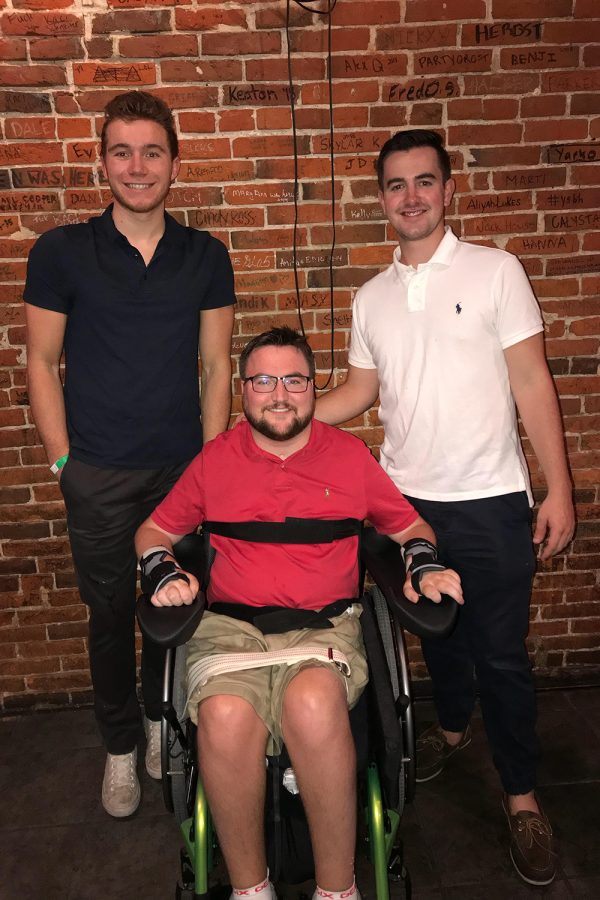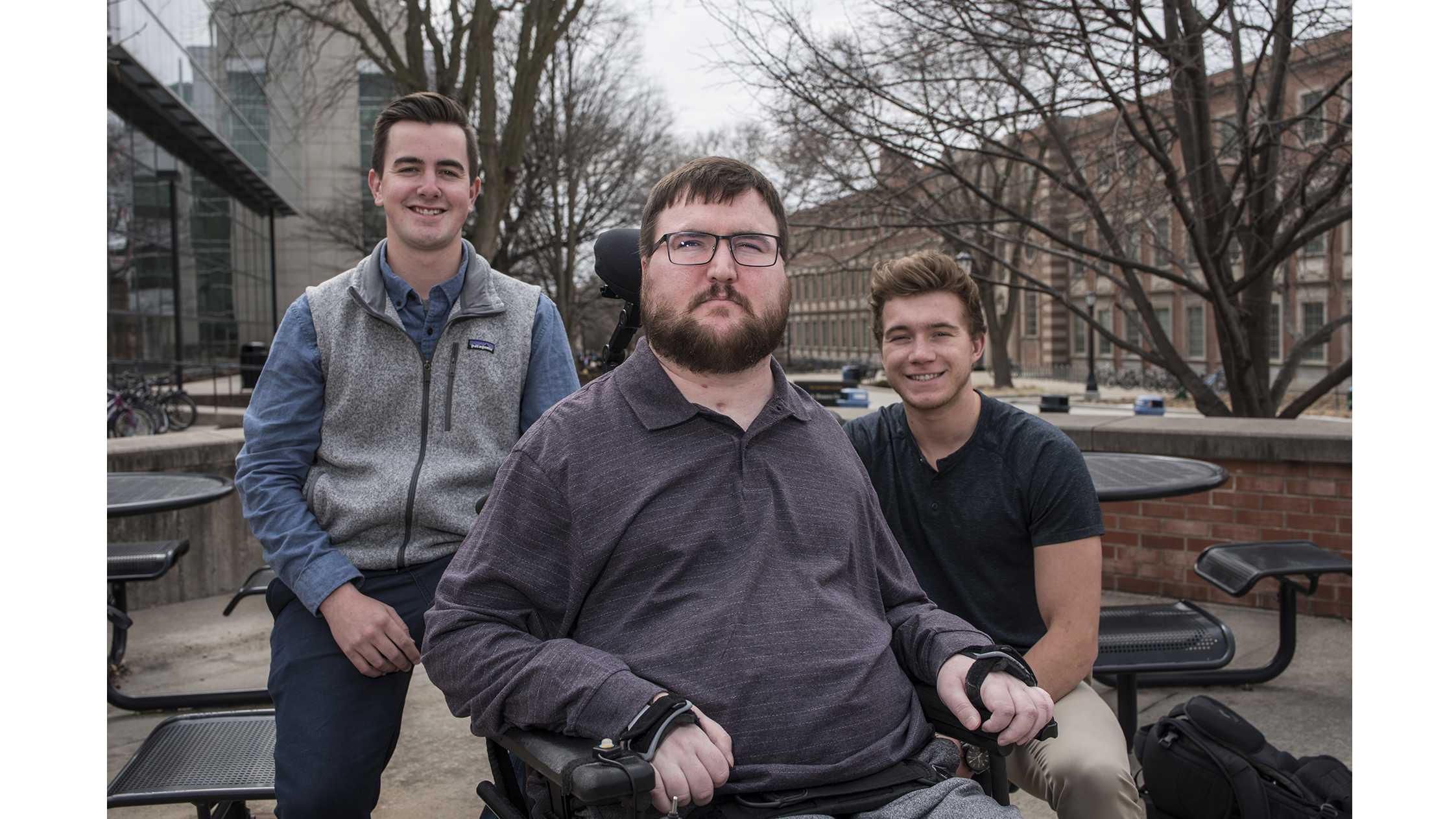Student-run nonprofit helping fellow students in need discusses its future
Three UI students discuss the first year of their nonprofit and their future plans, including expansion to Iowa State University, app development, and growing its staff and client base.
From left, Jacob Newcomb, Michael Penniman, and Peter Easler started the nonprofit Students Care.
September 6, 2018
The last time The Daily Iowan spoke with the co-founders of Students Care, it was in Michael Penniman’s single-sized dorm room in Burge.
Now, the office of the nonprofit organization, which is run by three University of Iowa students, is located just across the street at the Bedell Entrepreneurship Learning Laboratory. The students sit in leather chairs in conference rooms to discuss their organization’s future.
Students Care is a nonprofit organization aimed at providing UI students with physical disabilities a better quality of personal care and to improve the overall college experience for the individuals.
UI students Penniman, Peter Easler, and Jacob Newcomb started the organization last October after Penniman, a quadriplegic, said he experienced insufficient care from local providers.
The business has since grown, with the number of clients doubling from two to four, including its first female client.
“That was a challenge, trying to build a new team when we’ve primarily only had guys and getting in touch with girls who wanted to be a part of it, but we made it work,” Newcomb said. “We now have eight or nine women volunteering for us, so that’s fantastic.”
To help organize the growing number of clients and employees the group works with, the students have also created an app.
“We are building, or I guess have built, an app,” Easler said. “The app works for scheduling purposes, and in terms of growth, if we were going to another university, workers can get an idea of how many clients are at that school, who they want to sign up for, sign up for shifts, and communicate with the client.”
Students Care has made headway as a part of the UI as well.
The organization is registered with the UI Founder’s Club and won awards at two university business competitions against for-profit business models. Students Care also has a board of directors made up of faculty from the UI Finance and Risk Management Departments and one of the client’s parents, who has nonprofit-management experience, Easler said.
“Getting people who have experience in the industry helps us,” Easler said. “There isn’t really a company like us that we can base our operations on.”
The business model is currently funded by donations, which can be made through the organization’s website. The three said one of the first steps they took when creating the business was to have a quality website that would make donating to and contacting the group easy for others.
Regarding the future of Students Care, the group members said they are working on a plethora of new initiatives to grow the business and spread the services as widely as possible.
They want to form a student organization and partner with existing student groups, and they all agreed that working with the support of the university is critical to their success. Penniman said he has been in talks with several student groups in the medical field to partner with Students Care.
“Instead of having to go out and find people interested in this type of job, these people need that experience,” Penniman said. “We’ve got word that maybe a few hundred students are potentially available as volunteers.”
Students Care plans to expand to Iowa State at some point this year. More information on the group can be found on its website at collegestudentscare.org.




